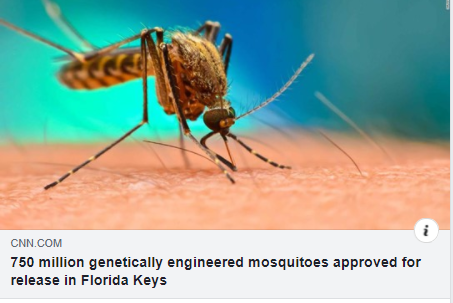Genetically Modified Mosquitoes Could Eliminate This Pest

The Luddites can go tear their sack-cloth and scream in their caves all they want. This is great news… and it cannot come to South Carolina fast enough. A successful massive trial in Florida only makes it more likely that SC will adopt the GMO mosquito control more quickly.
This is one of the great promises of CRISPR (cutting-edge, ultra-precise gene editing tools) genetic modification techniques, and I’m glad to see it come to fruition. This is great for the environment, as it could eliminate the use of literally millions of tons of pesticides… and throughout the third world it could end the needless deaths and suffering of tens of millions from mosquito-borne illnesses.
But selfishly, I’m just glad to see the potential elimination of mosquitoes at large. There are enough flying insects to support the rest of the food chain. The elimination of the mosquito would create a void that will quickly be filled… But this is a prospective species elimination that I will not mind – at all.
Great analysis. First, a reiteration of what we’ve discussed here often about GMOs generally. Editing the genome of a species in a laboratory, whether it’s a plant or an animal, has no essential difference from what humankind has been doing outdoors for the last 8000 years. That is, we take specimens that have characteristics we want, and use the DNA that is contained in that apple seed, horse sperm, or whatever, to build a next generation ever closer to the ideal. The first apples were the size of ping pong balls and incredibly bitter.
Another point to be made here is that this is a wonderful example of adaptation to (rather than mitigation of) climate change. Wiping out the mosquito population won’t slow the rise of the planet’s temperature, but it will help shield us from its consequences. Global warming means longer growing seasons for mosquitoes, thus we’ll have more of them, and for extended periods of time. Insofar as they carry a host of potentially lethal diseases, this is a boon to humankind.
